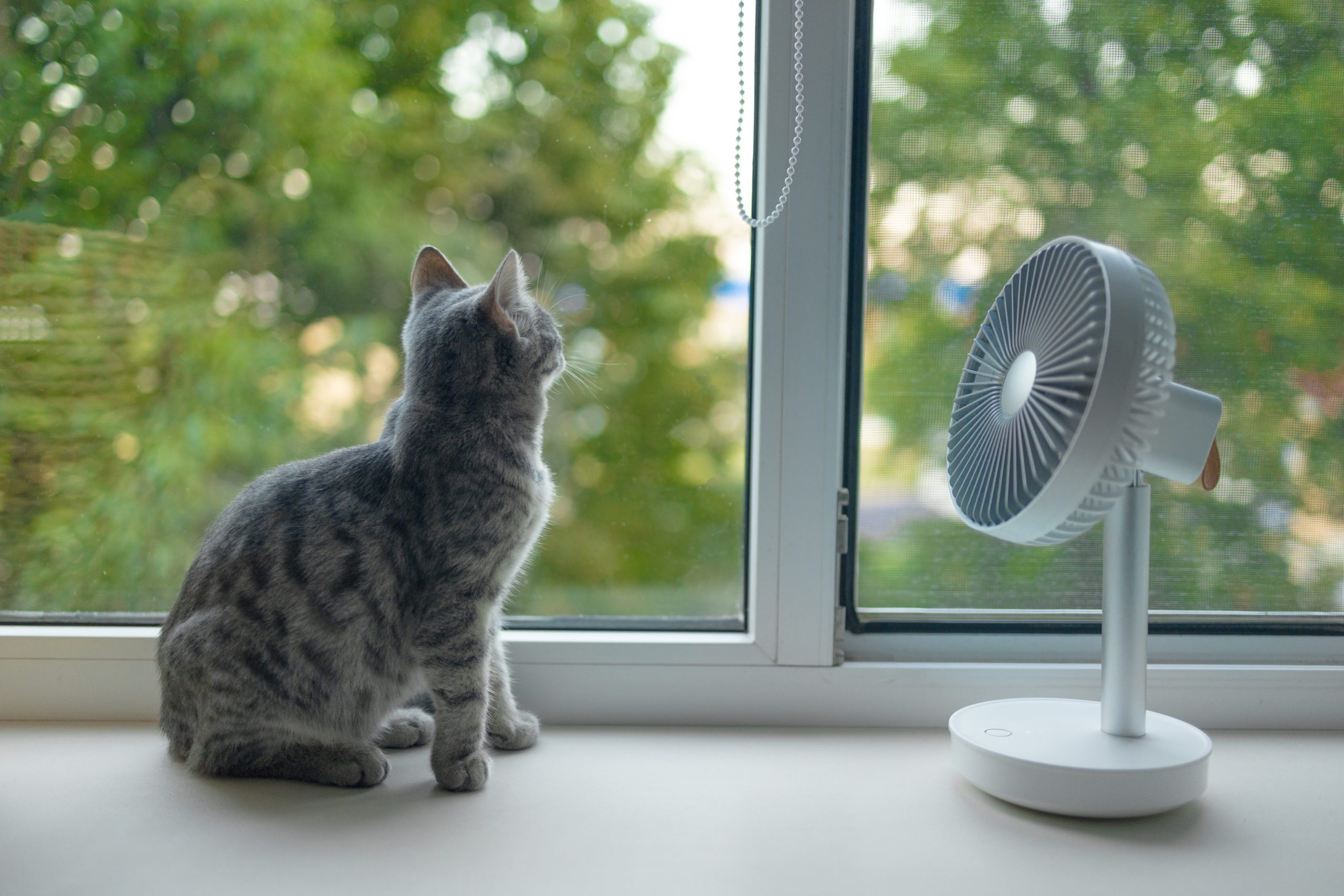
Nine Ways to Cool Cats During Hot Weather
Arizona summers can be brutally hot. Keeping a close eye on cats during hot weather can help keep them more comfortable indoors and outside, but more importantly, help prevent your cat from overheating. Here we’ll share some quick tricks for keeping cats cool, how to cool a cat down, warning signs that your cat may be suffering from feline heat stroke, and more.
Keeping cats comfortable during the intense heat of Arizona summers requires a little extra effort, but it’s well worth it. Here are some easy tips for making your kitty comfortable during the long, hot summer months.
- Keep your cat well-groomed. Brush them regularly to prevent tangles and mats, which can trap heat. For long-haired cats, it’s worth considering having their fur clipped for the summer months. Talk to your vet to determine the best summer grooming habits for your cat’s age and condition.
- Use a cool, wet washcloth or damp paper towel to stroke them on hot summer days. Your kitty will love the extra attention, and dampness can help cool down a cat when it’s extra hot outside.
- Keep them well-hydrated. Consider adding some wet food to their diet for the extra water content, but be sure to add it gradually to prevent upset tummies. Leave dishes of fresh water around the areas of the house where your cat hangs out, and be sure to change the water every day as cats avoid stagnant water. You can also leave a tap dripping for a fresh drink or purchase a pet water fountain. If your cat likes to go outdoors, make sure there is plenty of fresh water available outside, along with cooler shaded areas to shelter from the sun.
- Keep window blinds, drapes, and shades drawn on hot days. This will help the interior of the house stay cooler, plus there’s the bonus of helping to keep those high A/C bills down.
- Create or allow access to cool spaces. Cats and dogs love to lie on the cooler parts of the floor, so removing area rugs can help cats stay cooler during hot weather. You can also allow them to have access to bathrooms with a ceramic sink or tub for a cool spot to hang out.
- Set up a small box fan for your cat to enjoy a cool breeze during the hot summer days. If you want to go all out, place a bottle of frozen water in front of the fan to create a natural air conditioner.
- Elevate their bed to increase ventilation—air passing underneath the bed can help keep their sleep spot cooler and more comfortable. You can also purchase a special elevated cloth bed for the summer months.
- Treat cats to a cool water bottle. Freeze a bottle of water, then wrap it in a small towel. Place the cool water bottle in their bed or a favorite spot for a cat nap. The extra chill will cool cats during hot weather.
- Create a kitty oasis. Cats love dark, cool spaces, so place a cardboard box behind a chair near a vent or in a cooler, darker space in the interior of the house. Place a soft cotton towel or liner in the box so they can sleep comfortably in the coolness.
Signs Your Cat is Overheating
Cats are stealthy creatures, and they love hiding spots, so always double check before closing the shed or garage doors to be sure your cat doesn’t accidentally get trapped outside. Signs that indicate your cat is overheating can include any, or all, of the following:
- Excessive panting
- Drooling
- Red tongue
- Lethargy
- Sweaty paws
- Agitation and disorientation
- Vomiting
- Fever
- Collapse/unconsciousness
Feline heatstroke can happen when your cat’s body temperature rises too high. If your cat has any of the symptoms we listed, it’s essential to take them to the vet straight away for treatment. Feline heat stroke can have a serious impact on their health.

